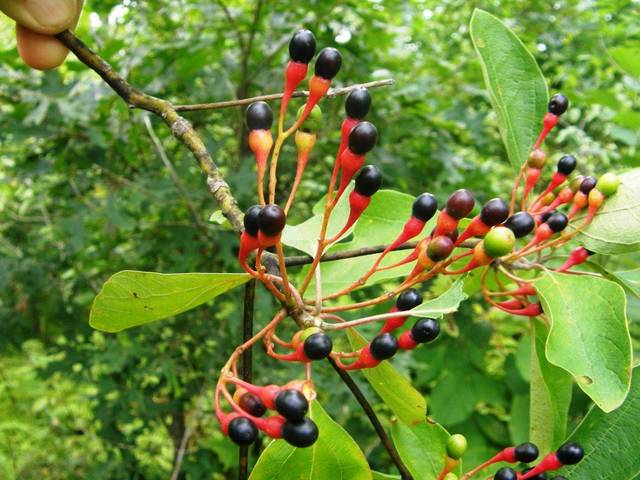Plants that use dinner bells
Published 6:15 am Tuesday, October 1, 2019
|
Getting your Trinity Audio player ready...
|
By Steve Roark
Tri-State Outside
It’s nice to think that plants produce fruit for our pleasure and that of other creatures. They do want us to eat them but have an ulterior motive of getting their seeds dispersed to other areas.
If all the fruit that a parent plant produces were to simply fall to the ground, few would survive. The adult plant already has a claim on the available sunshine, soil, water and nutrients needed for healthy growth. Since plants are not mobile, they use other means to get their seeds dispersed and thus continue the species. Many do it through bribery, providing a tasty food source that a mobile animal eats and then moves on. The hard seeds inside of fruit pass through the animal’s gut undigested, and eventually get deposited somewhere with fertilizer to boot.
To assure their fruit is seen for consumption, many plants display what is called pre-ripening fruit flags, going through a series of color changes as they ripen. Fruits like blueberries, cherries, mulberries, blackberries, and raspberries all start out a green color. As they mature, they turn a pink to red, then purple, and finally black or blue when fully ripe. This color change serves as a signal to animals that fruit is about to ripen, encouraging them to stay in the area and feed. This ups the chances of getting the seeds dispersed.
Another trick some fruiting plants use is to go through an early leaf color change in the fall. The bright red or yellow leaves are very distinct against a predominantly green background and are thus attractive to animals (especially flying birds) from a distance. This early flush of color is called foliar fruit flagging, and is used by poison ivy, Virginia creeper, sassafras, blackgum, wild grapes, dogwood, and spice bush to announce ripe or nearly ripe fruit.
The next time you enjoy wild fruit of some kind, keep in mind you are being played, but in this case both sides win.
Steve Roark is a retired area forester from Tazewell, Tennessee.






